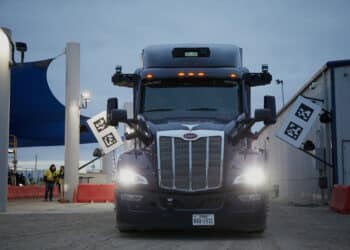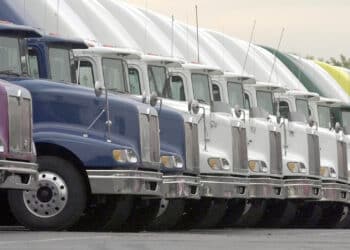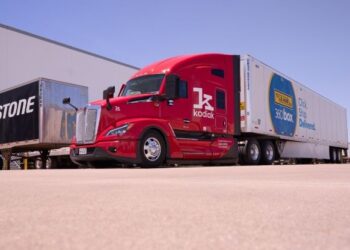Detroit carmakers feud over Trump’s threatened truck tariffs
Trump last week announced the 25% duty on heavy-duty trucks
US carmakers have mounted a furious, last-minute lobbying blitz over the Trump administration’s potential tariffs on medium- and heavy-duty trucks, in a fight pitting Detroit’s legacy automakers against each other.
Stellantis NV has lobbied the administration in recent days to waive or soften a possible 25% tariff that could otherwise hit medium-duty Ram pickups the company makes in Mexico, according to people familiar with the matter.
General Motors Co. and Ford Motor Co., meanwhile, have urged Trump administration officials to dismiss the request, said the people, who asked not to be identified because the discussions are private. Ford argued that shielding Stellantis from the medium-duty truck tariffs would hand the company a cost advantage over US-assembled trucks that contain imported parts already subject to tariffs, they said.
GM told administration officials that if Stellantis gets relief on trucks, other automakers will want exemptions, and the Detroit-based maker of Chevrolet and GMC pickups should get one on its other Mexican-built models, one of the people said.
The effort comes just as the administration has blown past a timeline for imposing the tariffs, which President Donald Trump had said would be in place by Oct. 1. Trump last week announced the 25% duty on heavy-duty trucks — part of a months-long investigation into heavy- and medium-duty models.
It’s unclear when a decision will be made, or whether Trump will opt to ease any tariffs from the probe, said the people. Trump has shown a willingness to give some companies — such as Apple Inc. and Pfizer Inc. – a a break on planned tariffs in exchange for moving more manufacturing to the US.
“Ford appreciates the Trump administration’s recent direction on heavy trucks, which supports our shared goal of growing the America auto industry and US manufacturing,” the company said in a statement.
GM and Stellantis declined to comment. White House spokespeople didn’t comment.
The US Commerce Department in April launched a probe into heavy truck imports under Section 232 of the Trade Expansion Act, which allows for the imposition of import taxes on goods deemed critical to national security.
The probe focused on medium- and heavy-duty trucks weighing more than 10,000 pounds as well as parts, stating that a “small number” of foreign suppliers made up the bulk of US imports due to “predatory trade practices.”
Proponents of the move say it will help strengthen domestic manufacturing. At the same time, duties on medium-duty trucks in particular would expose a new class of vehicle made by Detroit’s automakers to import taxes, which already apply to imported parts and finished passenger vehicles.
Stellantis manufactured 206,962 Ram 2500 and 3500 medium-duty pickup trucks at its factory in Saltillo, Mexico, last year, according to automotive researcher S&P Global.
Ford built nearly 400,000 Super Duty pickups at plants in the US, while GM assembled roughly 266,000 medium-duty trucks in America last year, according to S&P.
Ford Chief Executive Officer Jim Farley expressed enthusiasm for a 25% tariff on imported heavy trucks to protect US manufacturers during an interview Sept. 30 with CNBC.
“This is a really big deal for our country and for Ford,” Farley said, noting that the company makes all of its heavy-duty vehicles in the US. “We have a lot of competition from overseas and a 25% tariff would be a really big deal.”
The possible levies are part of a growing slate of industry-specific tariffs Trump has imposed on goods including imported steel, aluminum and copper. Additional levies on softwood timber and lumber, kitchen cabinets, vanities and upholstered wood products are set to apply from Oct. 14, with some increases kicking in on Jan. 1.
And more Section 232 investigations are ongoing into foreign-made solar panels, commercial aircraft, semiconductors, critical minerals, robotics, medical devices and industrial machinery.
The industry-specific tariffs also afford Trump more flexibility as his country-level duties — which he imposed citing a different authority, the International Emergency Economic Powers Act — are being challenged in the federal courts. The Supreme Court has scheduled arguments for Nov. 5.
— By Keith Naughton, David Welch and Jennifer A. Dlouhy (Bloomberg)









